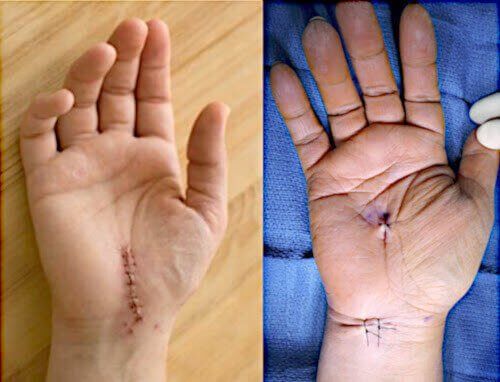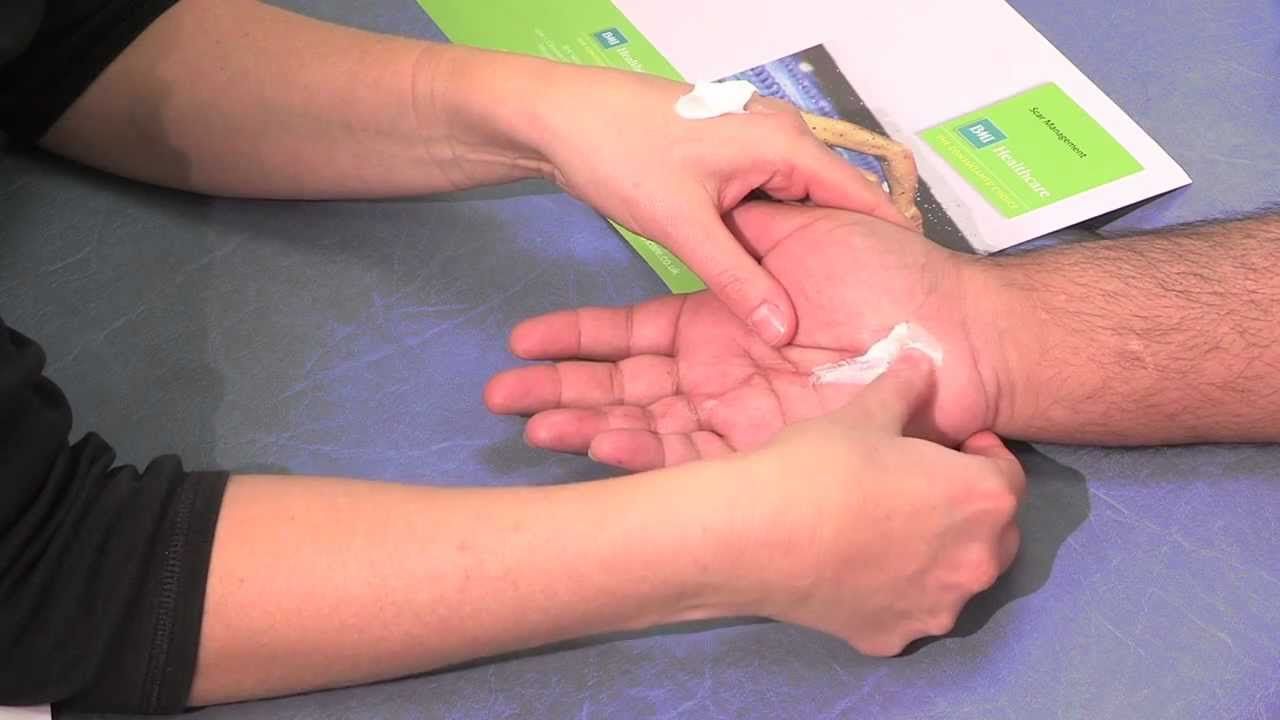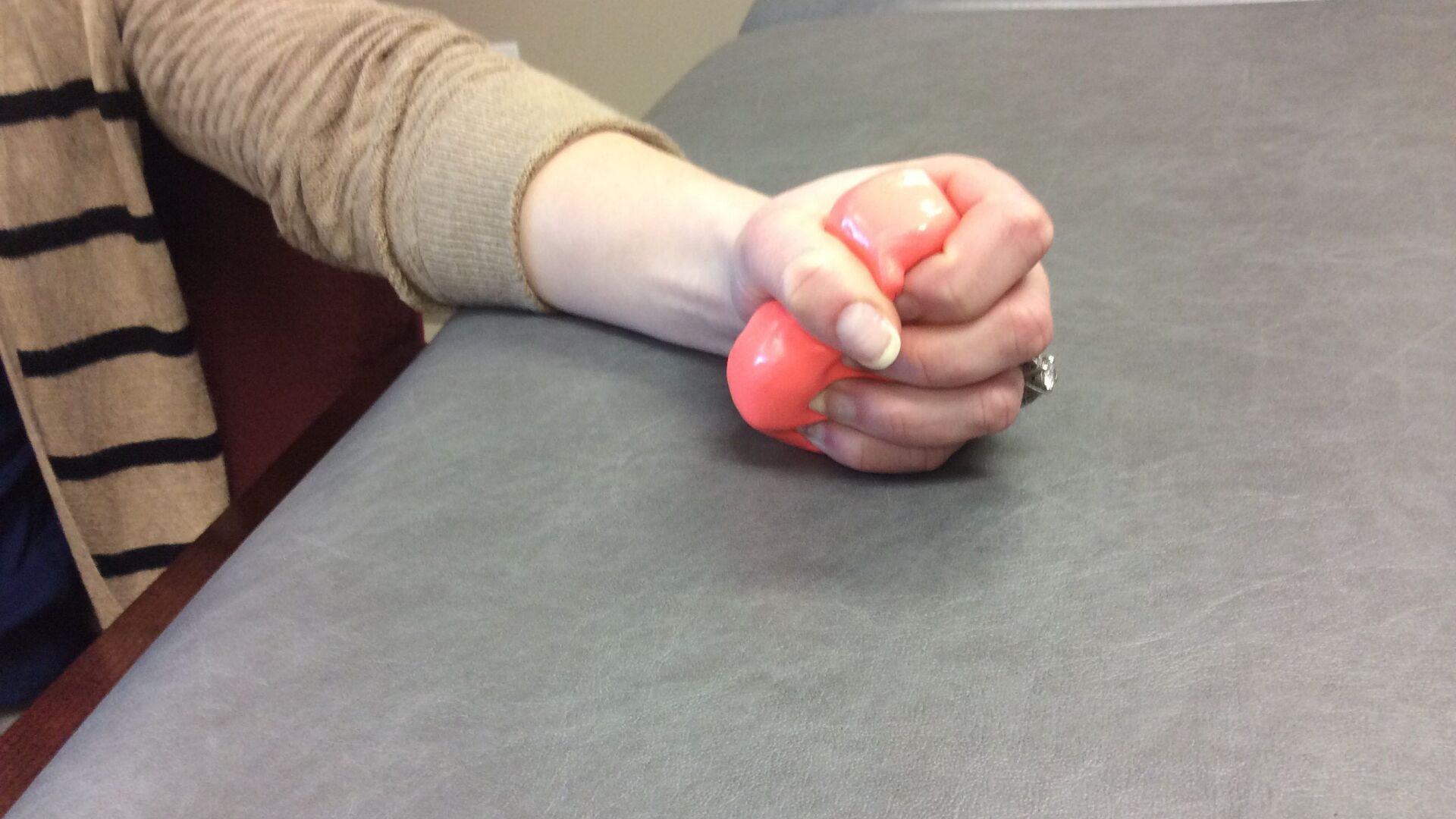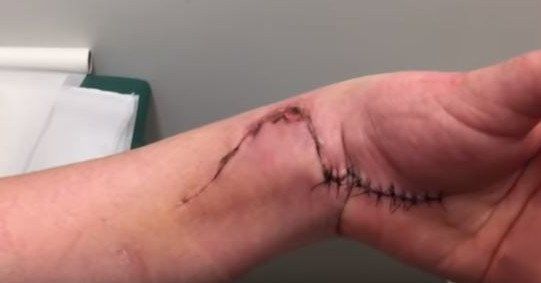Guide to Carpal Tunnel After Surgery
From Dr. Z - Carpal tunnel syndrome specialist
Carpal Tunnel After Surgery: What it's Like
Before surgery, your hand and fingers have intense pain or numbness that drive you crazy. These are the sensations you get from carpal tunnel syndrome.
Then, after surgery, things are usually a lot different. For most patients, the majority of those feelings will be gone within a few days.
In the meantime you just need to contend with the
post-surgical pain for a little while. And if all goes well your hand will be back to normal again within a few months. Your recovery depends on some factors that are in your control -- and others that are not.
- FIND OUT: do you have carpal tunnel? No strings attached self-test.
Carpal tunnel after surgery: the recovery room
I love roaming the post-op room where patients rest and recover right after carpal tunnel surgery. In contrast to the pre-op room, where faces are frightened and wide-eyed, this place is a lot happier.
Faces are all smiles and relieved because their operation is finally over. Some patients are even giggly and joking with the nurses. They’re also happy because they can’t feel anything -- not yet.
That postsurgical pain will certainly come when their hand finally wakes up. But your doctor probably warned you about that. Hopefully your doctor also told you that the period after surgery is no picnic. That’s when the real work to restore your hand's function begins.
The most comfortable post-op patients usually had surgery without general anesthesia. Instead, they had a regional anesthesia commonly known as a nerve block. That means the surgeon only numbs the hand and wrist, without putting you to sleep.
Many patients also get supplemental sedation in order to relax and calm them down. You might say it puts them in a semi-conscious state. That’s why carpal tunnel after surgery feels painless.
Carpal tunnel after surgery: procedures
Bandaging
Anesthesia wears off
In the recovery room, you will either be wide awake or just waking up. That depends on if you had a local or general anesthesia.
With a local anesthesia, your hand will not hurt because it's numb. With general anesthesia, you may feel some discomfort even though you were given a pain injection.
Discharge
Carpal tunnel after surgery: at home
Rough nights
Most people expect the pain or numbness from carpal tunnel (after surgery) will be immediately gone. Usually it's not.
During your first days at home, the surgical pain will make life difficult. Your hand will start to “wake up” a few hours after getting home. Then the pain escalates slowly and steadily. But you'll have pain medication to help. Take the pain pills on schedule and follow the medication label.
Also keep you hand elevated as much as possible. This reduces pain. It's best to sleep with your head and hand higher than you heart's level to help reduce pain and swelling.
Mind your bandages!
You will almost certainly have trouble sleeping for your first 3 nights. But with the right pain medication, it won’t be too bad. Remember to elevate your hand and arm on pillows to keep blood from pooling and causing more pain.
After surgery you'll need to take extra precautions and be vigilant. For one thing, remove all items from the bedside that you may accidentally bump or bang your hand into. That can rip stitches, which is very common. Ripped stitches will make your recovery after carpal tunnel surgery even more miserable than it has to be.
And never get your bandages wet. That invites infection. Infection is something you must avoid at all costs. If you must bathe, wrap your hand in a plastic bag and hang it outside the tub. For showering, put your hand in a plastic bag and tape it sealed around your upper arm.
As pain lessens
There's one great thing about the operation for carpal tunnel: after surgery the pain eventually diminishes. It takes 2-4 days for the surgical pain to decrease substantially. You might even be able to get off the prescription pain pills and take over-the-counter pills like Tylenol or Advil.
Also, try to wiggle your fingers as much as you can. Some simple exercises in your postsurgical instructions will keep your fingers from freezing due to adhesions. But don’t over-do it.
Back to work?
Removing the bandages and bracing
Finally, after about 10 days you'll return to the doctor. Then he or she will take the bandages off.
What a relief!
In their place, you get one of several kinds of carpal tunnel braces. For now, wear the brace 24/7.
Care of the immediate area around the carpal tunnel after surgery mainly requires wearing the brace. It serves as a wound protector as well as a wrist stabilizer.
With endoscopic surgery, you may only need the brace for 3-4 weeks. But after open release surgery, you may need it for 1-2 more months. Then it can be removed during the day. But you must still wear it at night for another 2 months.
Bracing is just one of the considerations in the pros and cons of endoscopic carpal tunnel surgery.
Finally, when the bandages are removed you can begin hand therapy. This aims to restore your hand’s strength and range of motion.
Are your symptoms gone?
When you and your doctor discussed what happens after surgery, he or she probably reviewed what to expect. If all goes well, the pain and numbness you had before surgery should start to diminish within a few days. Usually by 1-2 months you're free of symptoms.
Unfortunately, in about half of patients, this never happens. Either symptoms don't go away or else they do but return later. This is why 50% of carpal tunnel surgery patients are dissatisfied with their results by 2 years after the operation.
Hand rehabilitation & therapy
The period of rehab after carpal tunnel surgery can last for months to a year. The goal of hand rehab and therapy is to fully restore your hand function.
But sometimes restoration of hand function is a slow process. And it's speed depends on several factors. They include:
- the type of surgery you had (open or endoscopic)
- your age (older patients heal slower)
- if you have a chronic illness (e.g., diabetes or COPD will slow healing)
- the commitment you make to therapy (a strict regimen improves and speeds results)
- your own natural healing abilities
- whether or not you smoke (which reduces healing speed)
- your general health
Effect of complications
No surgery is perfect. And carpal tunnel surgery certainly has its own risks. But there are specific possible complications associated with this operation.
Any complication will slow your recovery. For the most part, their severity will dictate your recovery rate. The more common complications include:
- reaction to the anesthetic
- excessive pain
- abnormal bleeding
- hand weakness
- return of symptoms
- incomplete elimination of symptoms
- nerve injury
- tendon injury
- infection
Summary
You can expect the initial time after surgery to be devoted to managing the postsurgical pain. Sleeping, bathing, and toileting will be difficult but should get easier in the coming days. Depending on which type of surgery you had, your recovery time will normally last a few weeks to months. The reduction in pain or numbness after surgery should be dramatic within the year. Unfortunately, some unlucky patients never have a normal hand again.










